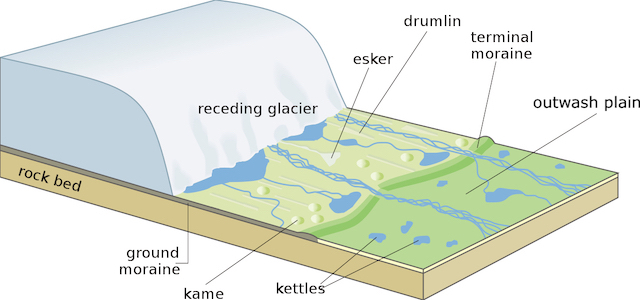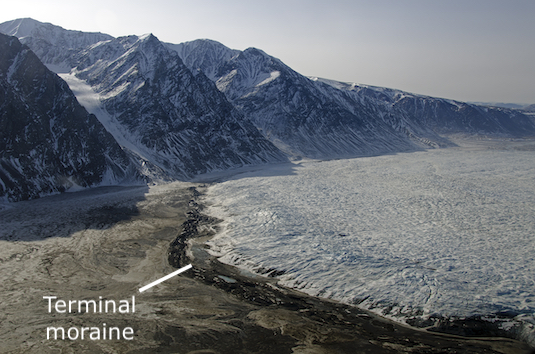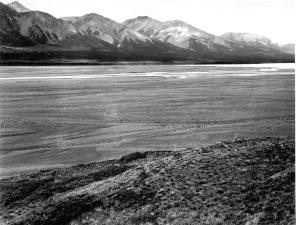Landforms of Continental GlaciationA receding continetal glacier exposes a variety of depositional and erosional landforms shown in Figure 19.18. Refer to this diagram as you read about the various landforms created by continental glaciers.
Figure 19.18 Glacial landforms created by the effects of continental glaciation. (Source Wikipedia, © Hans Hillewaert / CC BY-SA 4.0 Modified from the original and published here under CC BY-SA 4.0 license.) A moraine is a glacially formed accumulation of unconsolidated debris. Moraines often take
the form of a belt of low hills composed of till. Those forming at the leading edge of the glacier end moraine Figure 19.19 Terminus of Wordie Glacier in northeast Greenland with small terminal moraine. Source: NASA) Often, uplands will cause an ice sheet to separate into lobes.
Interlobate moraines form between lobes of the ice sheet.
Ground
moraine is till deposited beneath a steadily retreating glacierthat was lodged beneath the glacier and generally
found behind the terminal moraine. Ground moraine. Wetland areas are often
created in ground moraine which is a convenient way of identifying them
from a topographic map.
An outwash plain forms ahead of the terminal moraine as melt water from the snout of a glacier deposits stratified drift. The outwash plain is a relatively flat surface that may be pock marked with depressions called kettles. If numerous kettles are present the surface is called a pitted outwash plain.
|



